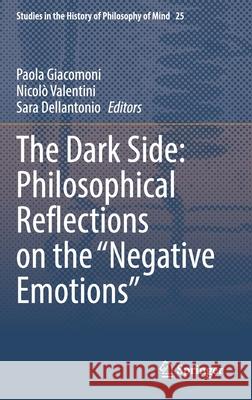The Dark Side: Philosophical Reflections on the "Negative Emotions" » książka
topmenu
The Dark Side: Philosophical Reflections on the "Negative Emotions"
ISBN-13: 9783030551223 / Angielski / Twarda / 2021 / 260 str.
The Dark Side: Philosophical Reflections on the "Negative Emotions"
ISBN-13: 9783030551223 / Angielski / Twarda / 2021 / 260 str.
cena 481,91
(netto: 458,96 VAT: 5%)
Najniższa cena z 30 dni: 462,63
(netto: 458,96 VAT: 5%)
Najniższa cena z 30 dni: 462,63
Termin realizacji zamówienia:
ok. 22 dni roboczych.
ok. 22 dni roboczych.
Darmowa dostawa!
Kategorie BISAC:
Wydawca:
Springer
Seria wydawnicza:
Język:
Angielski
ISBN-13:
9783030551223
Rok wydania:
2021
Wydanie:
2021
Numer serii:
000264535
Ilość stron:
260
Waga:
0.55 kg
Wymiary:
23.39 x 15.6 x 1.6
Oprawa:
Twarda
Wolumenów:
01
Dodatkowe informacje:
Wydanie ilustrowane











